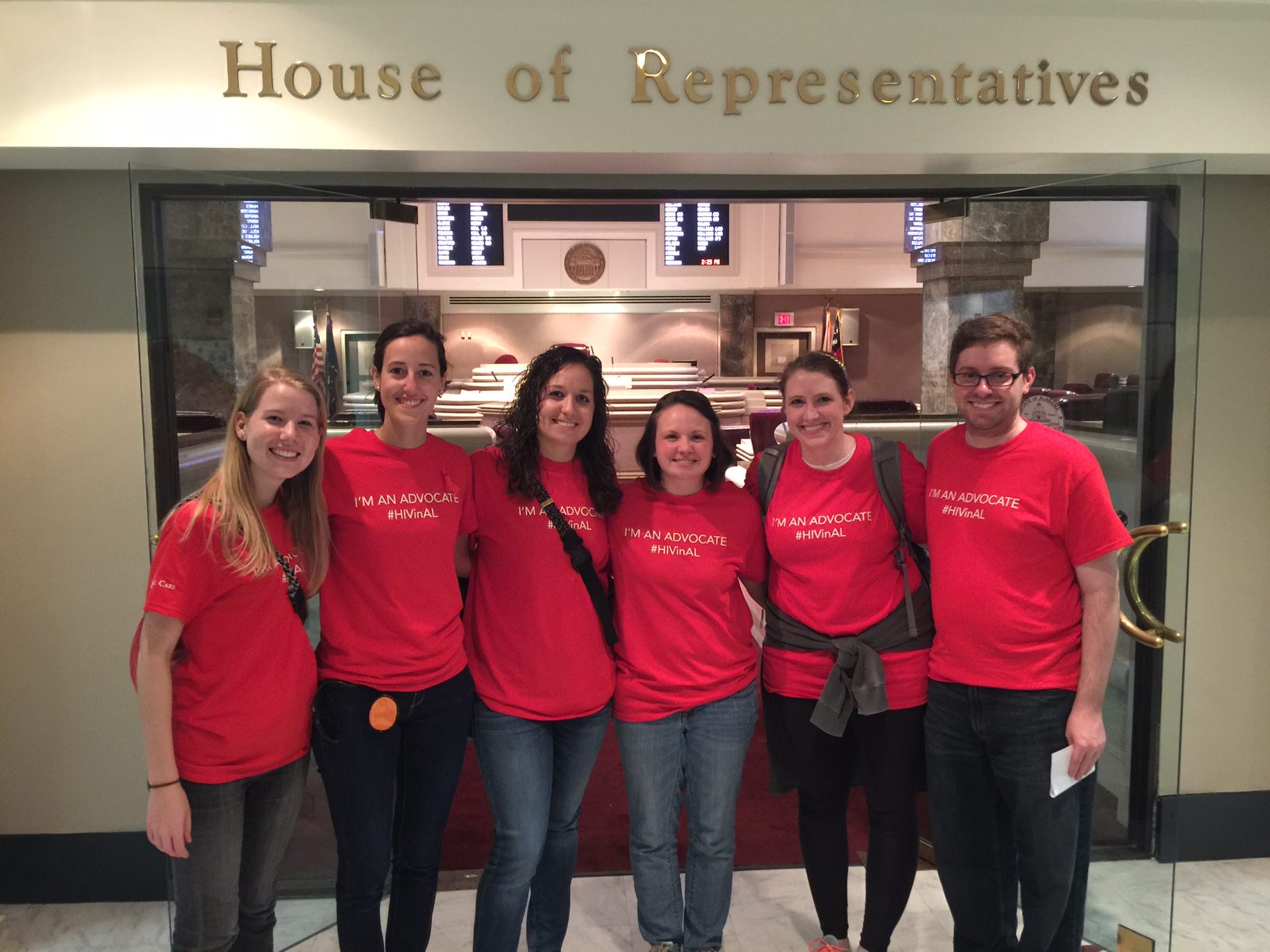Medical students at the College of Community Health Sciences marched for HIV and AIDS awareness and met with state leaders as part of the annual Alabama HIV/AIDS Awareness Day, held March 10 at the Alabama State House in Montgomery.
The students, who are part of the Tuscaloosa Longitudinal Community Curriculum (TLC2), participated in the day’s activities as part of their Leadership in Community and Population Medicine elective, says Dr. Lea Yerby, assistant professor of Community and Rural Medicine and the Institute for Rural Health Research at the College.
About 250 people living with HIV or AIDS and receiving medication from the AIDS Drug Assistance Program were present, along with other advocates for HIV and AIDS awareness from across the state.
“The purpose of the students’ participation was to learn about more organized advocacy, practice advocacy on the state level with the legislators representing their clinics’ communities, learn about advocating for their patients, and to see patients advocating for themselves,” Yerby says.
One of the most memorable parts of the day for TLC2 student Maria Gulas was hearing the stories of those living with HIV and AIDS.
“It was inspiring to see how these individuals overcame such devastating health effects and social stigma to be thriving as they are today,” Gulas says.
The students marched with the group to the Alabama State House and distributed district-specific HIV prevalence data to senators and representatives. Gulas said many of those living with HIV and AIDS advocated for themselves directly to state leaders.
“It was so powerful to see them fighting for their own care, with the support of family, friends, community members, public health leaders, and future providers, as the decisions made in that building will affect the lives of people living with HIV across Alabama,” Gulas says.
She says the experience was valuable for her and the other TLC2 students because it allowed them to connect with and learn from people living with HIV and AIDS as well as advocate for them and for those who will be future patients.
“Advocacy is a critical component of patient care, but it is not something to which we have much exposure in medical school,” Gulas says. “Just with this one day, I think all the medical students left with a clearer picture of what it means to advocate for your patients and gained confidence in our abilities to do just that.”
